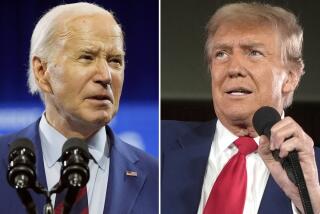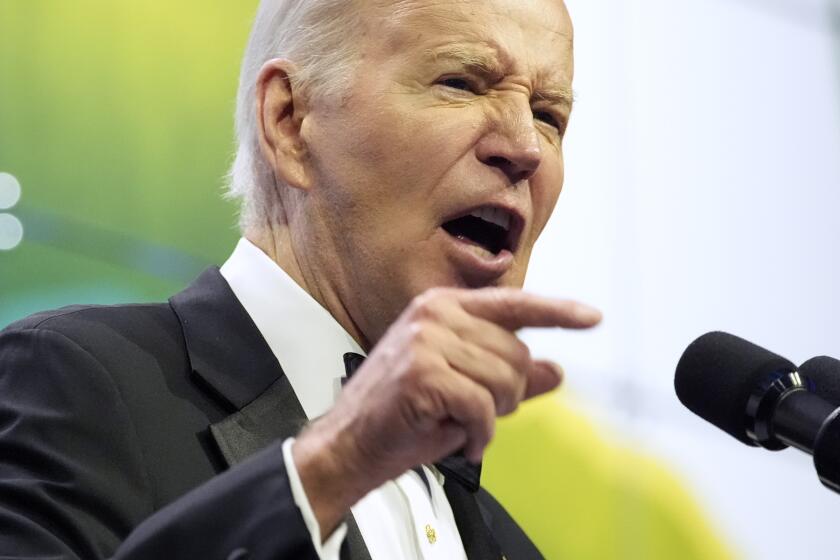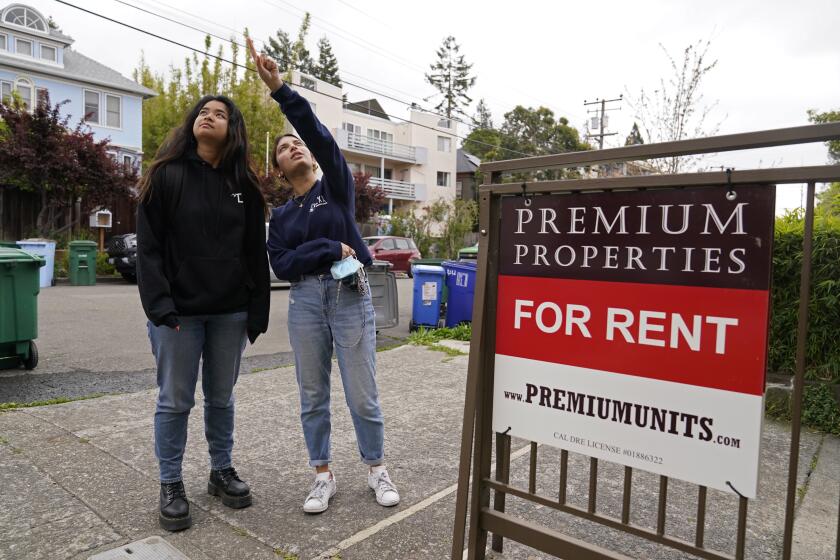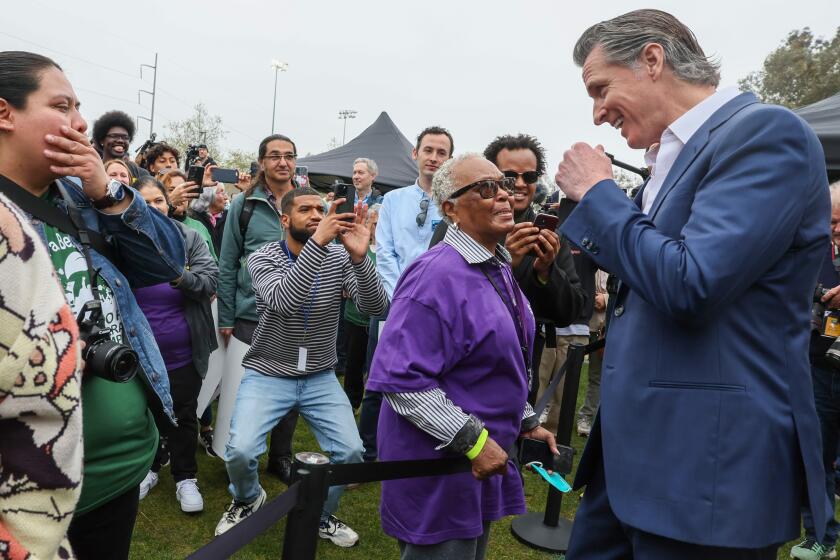The Role of Government Comes Into Play in Debate Over Social Security
After the titanic confrontations of the mid-1990s, the war between the parties over the proper size and scope of the federal government appears to have fizzled into stalemate. Since the defeat of President Clinton’s universal health care plan in 1994, Democrats mostly have shied away from major new spending proposals. And since a public backlash doomed the Republican budget plan of 1995, the GOP has abandoned the drive to significantly shrink the government by eliminating programs and agencies. Through Clinton’s second term, the two sides have essentially agreed to divide the tax windfall pouring into the federal Treasury without making major structural changes.
That truce looks to be breaking down in this year’s presidential campaign. In some ways, the debate between Vice President Al Gore and Texas Gov. George W. Bush re-creates the budget battles of the mid-1990s. Gore wants to use billions from the surplus to launch weighty new initiatives in education, health care and the environment; Bush wants to cut taxes by more than twice as much as Gore proposes, partly to prevent Washington from spending the money.
But taxes and spending, though an important disagreement, are no longer the sharpest point of division about Washington’s role. With the federal surplus exploding, even Bush’s budget plan does not envision a significant rollback in spending; while he’s proposed some weeding of the federal work force, he isn’t calling for the elimination of any Cabinet departments, as Republicans did in the heyday of their congressional revolution. Instead, Bush is offering modest but measurable new spending in the same areas as Gore--just as Gore is now offering bigger tax cuts.
Potentially far more profound is the argument emerging between the two men over Social Security. At stake is more than how Americans provide for their retirement; thinkers in both parties see the debate over Social Security as an opportunity to shape much broader public attitudes toward government for years.
Even Bush has called Social Security “the single most successful government program in American history.” That’s precisely why many conservatives are so enthusiastic about his proposal to partially privatize the system by allowing workers to divert a portion of their payroll taxes (probably around 2 percentage points initially) into individual accounts they could invest in the stock market for their own retirement.
Many on the right believe that, just as Social Security’s popularity legitimized a much broader array of Washington interventions in the economy, the attractiveness of the individual accounts could, over time, make Americans more comfortable with a society that relies less on government and more on the market and personal initiative. “Social Security made large-scale income transfers directed by the federal government a matter of routine,” Ramesh Ponnuru wrote recently in the conservative National Review. “Bush-style reform of Social Security could make routine the idea that people should be allowed to save their own money to accomplish important social purposes.”
Most privatization advocates believe that, while the individual accounts might start small, workers watching their balances grow would eventually demand that a larger share of their payroll tax be diverted into the accounts. That, of course, would leave less tax revenue to fund the guaranteed benefit under the traditional program and steadily shift the responsibility for providing retirement security away from government toward individuals.
Which is exactly what liberals fear is the point of Social Security privatization: undermining the consensus that government has a responsibility to provide a collective safety net. “You have to understand what is going on here is not an economic argument: This argument is about politics,” says Theda Skocpol, a professor of government and sociology at Harvard University who has written extensively on the U.S. social safety net. “I read the proposals of the partial private accounts as an entering wedge for allowing the wealthy to withdraw their taxes from the shared system of Social Security.”
Against the backdrop of those concerns, the logic of Gore’s competing approach to Social Security becomes clearer. Though the plan he unveiled last week shares some surface similarities with Bush’s--in that Gore also would help more Americans invest in the stock market--the vice president reaffirms and broadens the government’s role in providing for retirement security.
While Bush’s plan would inevitably demand reductions in guaranteed Social Security benefits for young workers who take advantage of his new accounts, Gore wants to transfer trillions of dollars from general revenue into the Social Security system to prevent any benefit reductions until at least 2054. On top of that, he wants to spend $200 billion over the next 10 years for tax breaks that would subsidize individual retirement accounts for low-income Americans as an addition to the current system.
That proposal--like Gore’s call for significant new federal spending on education, his plan to subsidize health care coverage for adults in low-income working families and his push for an expensive prescription drug benefit under Medicare--all aim to provide Americans with tangible new benefits that could solidify support for an activist federal government.
Even without proposing spending cuts, Bush, by contrast, consistently pushes in the other direction, looking to shift power (and often risk) from government to individuals through ideas such as his individual investment accounts and a comparable plan to transform Medicare from a system that directly delivers health care to one that provides seniors funds to buy private insurance. Bush’s support for school vouchers and increased reliance on religiously based charities to deliver government services points in the same direction.
Washington is such a granite monolith that its role changes only gradually. But in the last century, the Progressive Era led to the New Deal, which led to the Great Society and a government that, despite minor retrenchment since, has a hand in far many more aspects of U.S. life than a century ago. This election won’t settle the boundaries of government’s reach in the Information Age. But, with Bush and Gore offering such divergent visions, it may begin to set the direction for another century of change.
*
See current and past Brownstein columns on The Times’ Web site at: https://www.latimes.com/brownstein.
More to Read
Get the L.A. Times Politics newsletter
Deeply reported insights into legislation, politics and policy from Sacramento, Washington and beyond. In your inbox three times per week.
You may occasionally receive promotional content from the Los Angeles Times.






